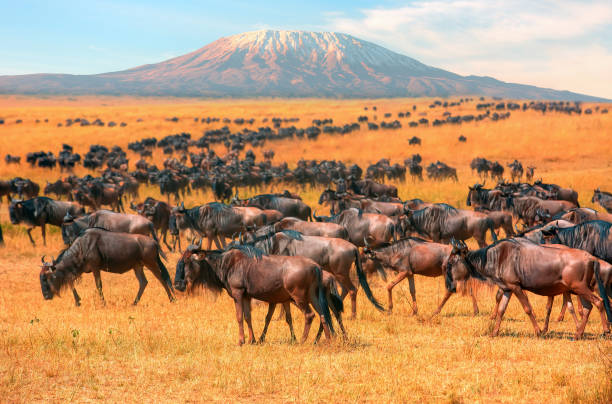By Francis Kimanene
Against a backdrop of mounting ecological challenges, the Naivasha-based Wildlife Research and Training Institute (WRTI) will, starting Tuesday the 23rd till 25th of September 2025 host a gathering of paramount importance for the future of global conservation. That will be the Second International Wildlife Scientific Conference, a seminal event poised to translate cutting-edge science into actionable strategies for planetary survival.
Beyond being a deliberate and perfect sequel to its groundbreaking inaugural edition held in 2023, the conference will be a meeting of world-renowned minds in the wildlife science and conservation space. Where the first conference successfully laid the foundational “why”—emphasising the critical role of wildlife science for biodiversity and livelihoods—this second chapter addresses the urgent “how.”
Under the theme “Innovations in Wildlife Conservation Science and Practice for Socioeconomic Development,” the discourse will pivot towards tangible solutions, technological breakthroughs, and interdisciplinary integration essential for navigating the Anthropogenic epoch.
The imperative for this progression has never been more acute. Kenya, a nation celebrated as one of the world’s mega-biodiverse treasures, finds its natural capital—the very foundation of an economy where tourism contributes over 10% to GDP—under severe threat from habitat fragmentation, climate change, and human-wildlife conflict. The government’s recognition of these challenges is reflected in its ambitious National Wildlife Strategy 2030 and the Kenya Wildlife Service’s (KWS) transformative 2024-2028 Strategic Plan, both of which call for precisely the kind of evidence-based, innovative policymaking this conference is designed to fuel and propagate.
The 2025 conference’s agenda is meticulously crafted to build upon the 15 resolutions born from the 2023 proceedings. It will facilitate a rigorous review of progress, ensuring the scientific community remains accountable to its commitments. Furthermore, it expands the intellectual frontier through nine intricate sub-themes. These range from Wildlife Health and Genetics—a critical field given the alarming rise in zoonotic diseases explored by institutions like the International Livestock Research Institute (ILRI) after the first conference—to Policy Governance and the vital Integration of Conservation Strategies Across Disciplines.
This holistic approach acknowledges a fundamental truth: the survival of a rhinoceros in Lewa is inextricably linked to the economic aspirations of a community in Taita Taveta, the technological prowess of a Nairobi start-up, and the global climate policy shaped in international forums. It is this nexus of ecology, economy, and social equity that the conference seeks to master.
Delegates will explore how innovations like drone surveillance for anti-poaching, genetic tools for population viability analysis, and digital platforms for eco-tourism can be harnessed not just to protect species, but also to drive sustainable socio-economic development, aligning perfectly with Kenya’s Bottom-Up Economic Transformation Agenda (BETA).
The expected outcomes are both profound and practical. Beyond the immediate forging of strategic global partnerships and the vital contribution to resource mobilization, the conference will culminate in the publication of proceedings to guide policymakers worldwide. Ultimately, it seeks to cement the recognition of biodiversity not as a peripheral concern, but as the central artery of a healthy, prosperous, and resilient national economy.
In essence, the conference is a powerful manifestation of the government’s pledge, as stated in Sessional Paper No. 1 of 2020, to promote scientific decision-making and honour its multilateral environmental agreements.
As the world watches, this conference represents more than a dialogue; it is a dynamic workshop for the future, affirming Kenya’s unwavering commitment to leading the charge in ensuring that both humanity and our planet’s magnificent wildlife can not only coexist but thrive together in resilient prosperity.
Dr Kimanene is a conservation expert based in Geneva, Switzerland



